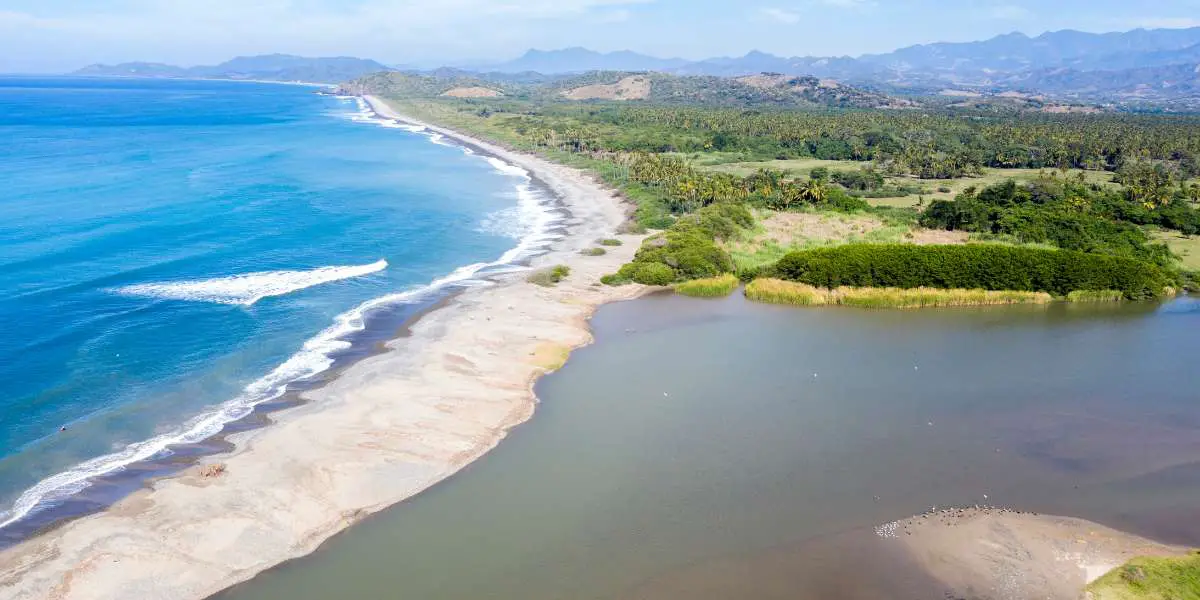Thailand is a tropical paradise filled with picturesque landscapes, amazing beaches, and vibrant cities. It is a popular tourist destination due to its rich cultural history and its natural beauty. Thailand is of course open year-round, but your travel preferences will dictate when the best time is for you to visit Thailand.
When is the best time to visit Thailand? The most popular time to visit Thailand is during the cool season from December to January. The mild temperatures, a respite from the heavy rain, and a variety of festivals make this an ideal time to explore Thailand. Other times of the year are marked by heavy, frequent rain and extreme heat, but can also be a good time to visit.
Traveling during peak season (cool season) carries the promise of good weather, a plethora of activities, and an abundance of great food. It also is known for being the most crowded and expensive time to travel.
Learning more about Thailand and what to expect year-round is a good way to determine when to plan your trip so you will get the most enjoyment out of it. The weather, the cost of traveling, what attractions you want to see, and where in Thailand you want to travel all play an important role in choosing the right time for you to travel to Thailand for your ideal vacation.
Thailand has Three Seasons
Thailand is a tropical destination and it is warm all year, but the seasons are marked as rainy, cool, and hot, instead of spring, summer, fall, and winter. The seasons do vary slightly throughout Thailand. Southern Thailand sees steady warmer temperatures throughout the year because of its proximity to the equator.
Rainy Season
Generally, the rainy season runs from May through October, but November is the rainiest season in the Gulf of Thailand. During the rainy season, the rain will often fall in the afternoon, allowing for some reprieve for sightseeing, but sometimes it can rain for days. The temperatures are warm but there is a high probability that you will get wet during this time of year.
If you travel to Thailand during this time, bring a raincoat. Be prepared to change your itinerary due to weather. Some hotels and attractions may not be open because it is low season. If you are flexible with your plans and do not mind getting wet, the smaller crowds and cooler temperatures during this time make it a good time to visit. This is also a cheaper time to visit Thailand.
Cool Season
The cool season runs from December through March and is more characteristic of northern Thailand. During this time, northern Thailand sees much less rainfall and temperatures that average around 60 degrees Fahrenheit, but temperatures can drop into the 40s at night.
Exploring Thailand during the cool season, you can see scenic green mountains, rice terraces, and beautiful flowers. This time is often the most expensive and popular time of year to travel to Thailand. You will be sharing your experience with more tourists, but you get the benefit of drier, cooler weather, and plenty of festivals and activities to experience.
Hot Season
Southern Thailand, where Bangkok is located, stays warm all year round with temperatures in the 80s and 90s, but the hot season in Thailand sees temperatures in the mid to high 90s from March through May. With little to no rain during this time, the heat can be stifling.
The best travel deals can often be found during this time, but the heat can be oppressive. This may be perfect for you if you plan to explore the beaches or participate in other activities that do not involve prolonged periods in the heat.
Best Time to Surf and Snorkel in Thailand
Thailand is a great destination for sand, sun, and water adventures. The clear water and temperate climate make it an ideal beach vacation. The best time of year to travel for surfing or snorkeling depends on what part of the country you want to visit.
Veteran and beginner surfers will love the beaches. Surfing on the west coast is best from April to October. Surfing on the east coast is best from October to December.
Snorkeling and diving can be done year-round in Thailand, but there are better times to go depending on your location and the time of year.
- The west coast (along the Andaman Sea) has optimal conditions during the cool season. If you travel to the west coast during the rainy season (May to October) you risk snorkeling in murky water or having your excursion canceled due to thunderstorms.
- On the east coast, snorkeling is great from May through September. There are beautiful islands off the east coast and there are plenty of snorkeling and scuba tours to take you out for the day.
Less Popular Times to Visit Thailand
Thailand has amazing events and attractions that you can visit year-round. While the temperate climate makes visiting Thailand optimal throughout the year, there are less optimal times to visit certain areas in Thailand.
- February to April in Chiang Mai is known as the burning season. During this time farmers are burning their fields. The smoke from the burning makes the air quality in this region poor. If you are thinking of visiting Thailand during this time, you may want to avoid this area.
- During the rainy season, the northern part of Thailand can be plagued with flooded roads, mudslides, and monsoons. If you are headed to Thailand from May through October, be prepared for a lot of rain in the north and cancellation of outdoor activities due to weather.
- If you are hoping to visit islands while in Thailand be sure to research closures and other tourist limitations. The Similan Islands, for example, limit the number of tourists allowed each year. They are also closed during the rainy season (May to October) to allow the islands to heal from tourism.
- Central Thailand during the hot season (March to May) can be brutal. If you visit during the hot season, consider visiting the coast to get the ocean breeze and cool off in the ocean or resort pool. If you are looking to hike in Thailand, the hot season is the least favorable time of year. You will want to hike earlier in the day and bring water and sunscreen.
Festivals in Thailand
There are both secular and religious festivals in Thailand. These are often marked by parades, fireworks, performances, and artisans. Many people plan their trips to Thailand around popular festivals. Here are a few festivals you can experience if you come to Thailand:
- Chinese New Year. Chinese New Year is a festive time where people wish each other good fortune for the coming year. Thailand has a large Chinese population, so the Chinese New Year is a major festival in Thailand. Bangkok and Phuket are good places to visit during the Chinese New Year.
It is based on the Chinese lunar calendar, so the date changes every year. It is in either January or February. This festival is marked with colorful decorations, dragon dancers, and food stalls. It is not a public holiday in Thailand, but it is widely celebrated.
Bring red to wear if you plan on joining in the celebration. Also, plan early because it is a popular time of year, and hotels and other accommodations may fill up quickly.
- Flower Festival. The first week of February is the flower festival in Chiang Mai. It is a popular three-day festival with parades, contests, and celebrations. You will see dancers in traditional Thai costumes, flower-covered parade floats, marching bands, and more. There is also a beauty contest to crown the Chiang Mai Flower Queen. This festival is popular, so making plans well in advance is a must.
- Silk and Phuk Seow Festival. In the Khon Kaen province in late November and early December, you can observe the Silk and Phuk Seow festival. This is a ten-day festival that celebrates the silk industry (silk weaving and raising silkworms) with parades and exhibitions.
During this time, you can also see the phuk seow ceremony, which is a custom of solidifying friendship by exchanging wrist strings to symbolize a close relationship that does not even end at death. This is a beautiful and touching ritual that is a must-see if you visit Thailand in December.
- Songkran Festival (Water Festival). Every year in April, this festival marks the beginning of the traditional Thai New Year according to the Buddhist calendar. Buddhists show signs of respect by pouring water on Buddha images and the hands of Buddhist monks at temples during this time.
This festival also involves throwing water. People walk around during this three-day festival dumping buckets of water on passersby, shooting people with water guns, and even dowsing people with hoses.
- Phi Ta Khon (Ghost Festival): This is a 3-day festival celebrating ghosts and fertility. It is an exciting festival located in Dan Sai, a small town in the Loei province of Thailand. People dress up as ghosts and there are religious ceremonies, parades, pageants, and music shows.
Tips for Planning Your Trip
Planning early is a good idea to make sure you can book your desired itinerary. Waiting until the last minute may result in a more expensive trip and sold-out flights, tours, and accommodations.
How to Find Discounts
Keep an eye out well in advance of your trip for flight and hotel deals. As flights and hotels fill up, the cost of tickets and rooms will increase. If you are flexible with your plans it is often cheaper to book mid-week flights. If you go during the hot or rainy season you can often find great travel deals since this is not the most popular time to travel to Thailand.
How to Avoid Crowds
In addition to saving you money, visiting Thailand in the low season (rainy season) is the best way to see the country without fighting hordes of other tourists. Traveling during the low season has pros and cons to consider before booking your trip.
Pros:
- The cost of traveling to Thailand during the low season is much cheaper than during the high season. You can save up to half price by traveling during this time. Vendors are more likely to negotiate on pricing during this time because there is less demand and more supply.
- Traveling to Thailand during the low season will allow you to be more flexible with your plans. It is unlikely that accommodations or attractions will be sold out, so you can book your itinerary as you go.
- You may enjoy the sights more without thousands of other tourists seeing them with you. Traveling during the low season, you will find the beaches less crowded and tour groups will be smaller.
Cons:
- There is a risk of having bad weather. Rain and unbearable heat come with traveling during the low season in Thailand. This can cause activities such as hiking, diving, and snorkeling to not be as enjoyable. Despite the risk of rain, the rain is usually brief and should not cause too much disruption to your plans. The heat may drive you into your air-conditioned hotel room during the afternoon, but you still have mornings and evenings to explore.
- Low season, as the name suggests, is not a busy tourist time, so some attractions, hotels, and restaurants may be closed during this time. If there is something special you want to do or see while in Thailand, make sure it is open if you decide to go during the low season.
Packing for Your Trip
Packing is a personal endeavor. Your travel style and itinerary will dictate what you will need on your trip. Here are a few tips to help you decide what to bring and what to buy once you are in Thailand.
- Avoid Overpacking. If this is your first trip overseas, you may be tempted to pack everything you could need while abroad. Rest assured that unless you are hiking through the jungle the entire time, you will have access to stores that sell most everything you need. If you must buy something you forgot to bring while in Thailand, you can support local businesses.
- Leave Room for Souvenirs. Thailand has a multitude of shopping experiences. Malls, markets, and shops have no shortages of cheap and expensive souvenirs for friends and family and yourself. Leave room in your suitcase so you can take some treasures home.
- Clothing. It is warm or hot most of the time in Thailand, but you should still bring a light jacket for airconditioned buses and buildings or the occasional cold night if you come during the cool season. Bring some conservative clothing to cover shoulders and legs if you are going to visit temples or other religious places.
- Money. When traveling abroad you should have multiple ways to access money. Bring cash in your currency as well as one or two credit cards. Having more than one way to access money is the best in case you lose a credit card, the ATM stops working, or you run out of cash.
Getting local currency from ATMs is best, but the ATM will charge a fee per transaction. Some debit cards will reimburse foreign transaction fees, so contact your bank before you leave to find out if you can get reimbursed. If your bank does not reimburse fees, take out the maximum amount allowed each time to avoid excessive fees.
- Travel Documents. When traveling overseas there are documents you will need to have with you.
- Bring your passport. Make sure your passport is valid for six months after the day you are scheduled to travel home from your trip. Many countries will not let you enter if it is close to expiring. You should also keep two copies of your passport stored away from your passport.
- Carry documentation of your insurance (health and travel)
- Extra passport photos may come in handy if you decide to visit a neighboring country. You might need them for your visa application.
- Medication and First Aid. Bring any medication that you take regularly with you. Make sure you have enough for the entire duration of your trip and extra in case you have travel delays. You should keep medication in its original bottles in case you are questioned by authorities.
Pharmacies in Thailand will have the basic first aid items like band-aids and pain relievers. Pharmacies even have antibiotics available for purchase without a prescription. You may even find the medicine that you use is cheaper in Thailand.
Consider bringing sunscreen and bug repellant with you. These items are expensive abroad. Using bug repellant is important because dengue fever is a problem in Thailand. If you do not have room in your luggage you can buy these locally. Either way, you should make sure to have these items with you during your trip. Thailand is rich in culture, it has beautiful beaches, an abundance of shopping and a no shortage of adventure. Thailand’s tropical climate makes it ideal for vacationing year-round, but the cool season is the most popular (and crowded and expensive) time of year for tourists to visit. No matter what time of year you choose to go, Thailand is an enchanting and memorable vacation destination.





